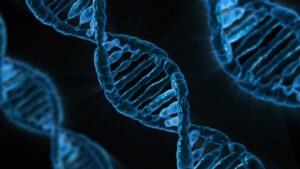
DNA banking is the process of obtaining DNA for long-term storage. A DNA sample can be extracted from a number of different sources in the body, including blood and saliva. Once the DNA is collected, it is then frozen for future use. The freezing process preserves the DNA and prevents it from breaking down over time.
You may be asking: “Why would someone want to bank DNA?” Most often, people decide to bank their DNA for the following reasons:
- Genetic testing is not a priority. When people are elderly or are terminally ill, genetic testing may not be considered a main concern. DNA banking assures that a loved one’s DNA is available for genetic testing after they pass away. Having DNA banked allows for genetic testing at a time that is more appropriate for a family. It is extremely important to get a DNA sample while an individual is living since it can be very difficult to get a DNA sample for genetic testing afterwards.
- There is no identifiable gene mutation. In some families there is a known gene mutation that can be passed down from generation to generation, which increases the likelihood of developing certain cancers. For other families, we may suspect that there is a gene mutation responsible for their cancers; however, current tests cannot identify such a mutation. As technology changes and improves over time, so does our understanding of genes that are associated with specific types of cancer. Banking DNA will allow for genetic testing years, or even decades, in the future when our research and technology have improved.
- DNA testing is too expensive. Genetic testing can cost thousands of dollars. Insurances may not fully cover testing, making patients responsible for a large bill. DNA banking, on the other hand, usually involves a one-time fee that is a fraction of the cost of a genetic test. Over time, the cost of genetic testing is likely to go down; therefore, genetic testing could be done on a banked DNA sample at a future date when it is more affordable.
When considering DNA banking, it is important to discuss with your family the need for genetic testing. The results of your genetic test may help your family members understand their cancer risks and how to manage their health. DNA banking may be a good option for you and your family, depending upon your needs. You can discuss DNA banking and other genetic testing issues with your physician.
by Carly Murphy, Genetic Counseling Intern
MGH Center for Cancer Risk Assessment